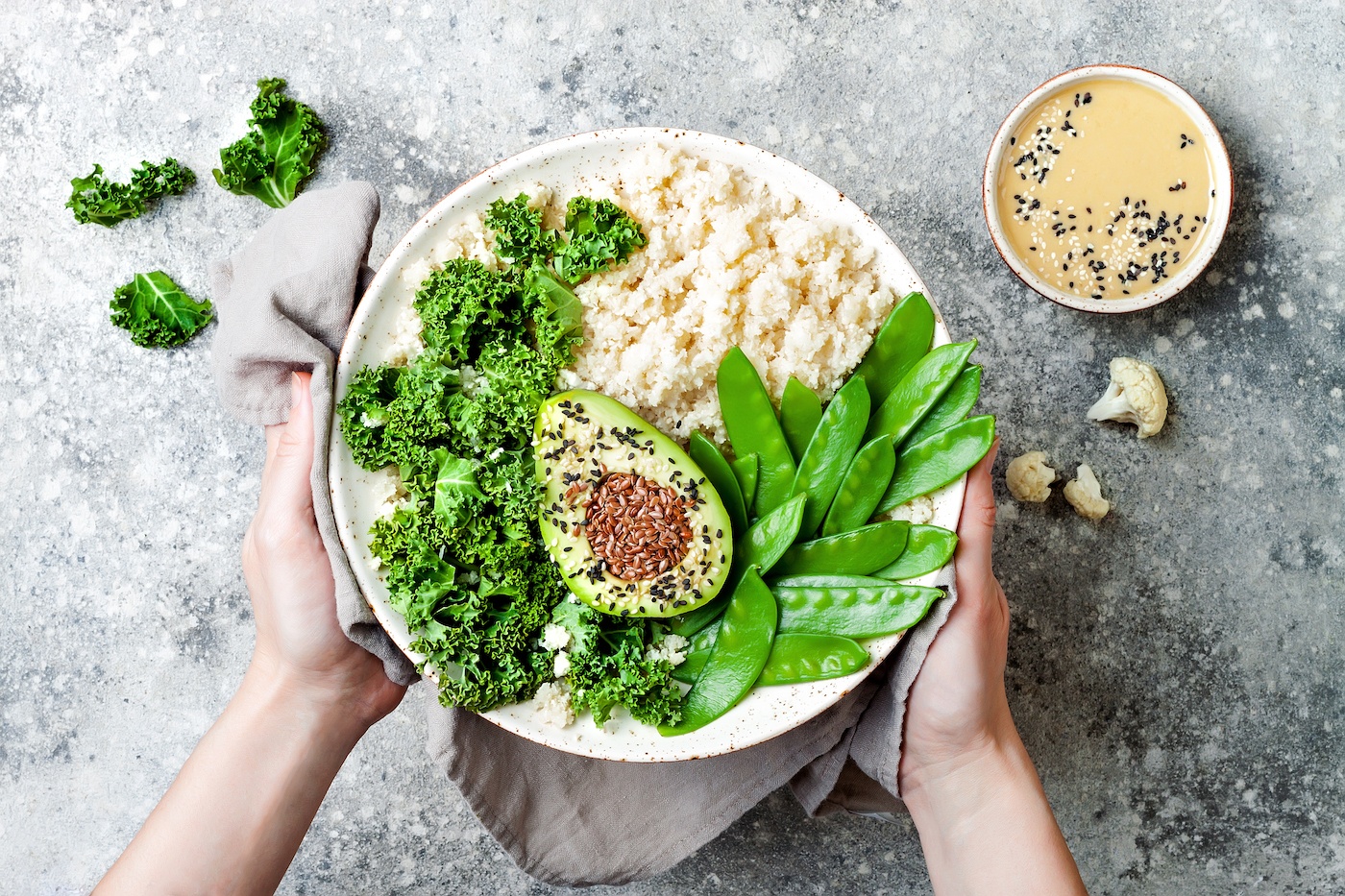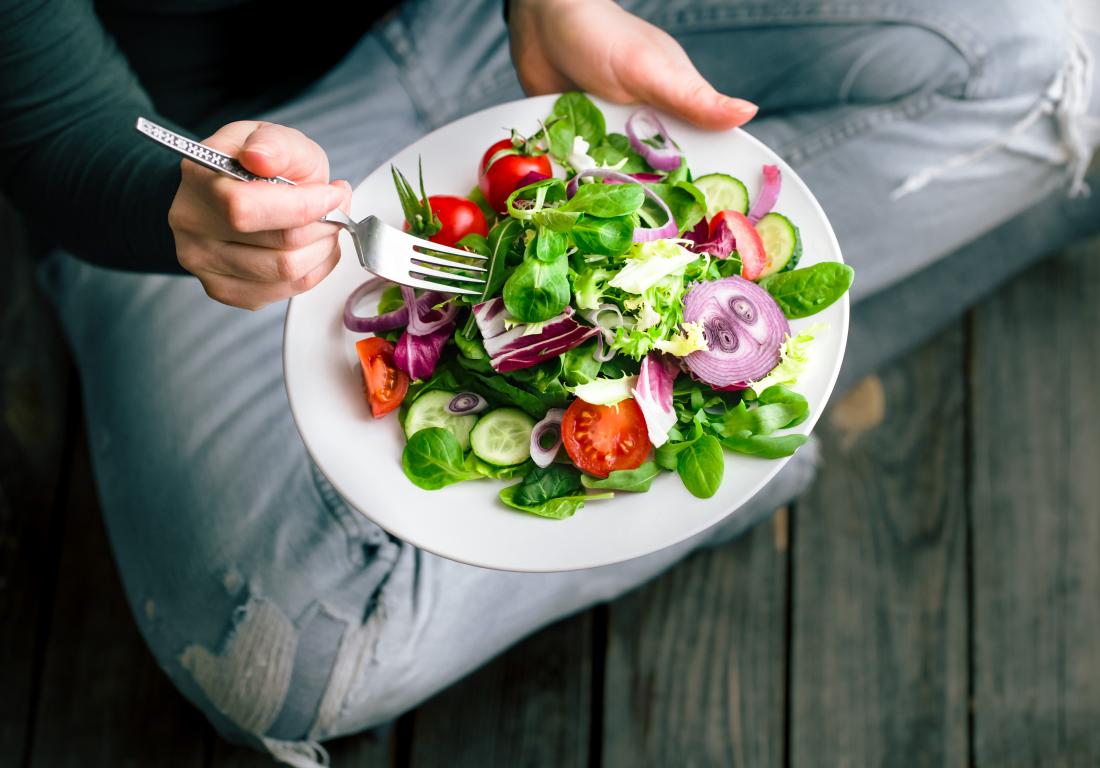Eating healthy isn’t just about the WHAT, it’s about how, when, why and of course how much you eat. Developing better habits around food has a major effect on energy, mood, digestion, and self-image. These aren’t fads or strict rules, but practical strategies that you can use every day to feel better and live well.
Here are 10 meaningful and realistic ways to improve your diet without having to starve yourself.
1. Check in with your hunger first
So much of what we eat is conditioning, or stress induced. The next time you find yourself craving your favourite something, take a deep breath and ask yourself: 'Am I GENUINELY hungry?' Often, you'll be surprised to discover the answer is 'no'. Sometimes, we use food to break boredom, or to take our mind off our thoughts. Learning the difference between physical hunger and emotional triggers is the single best thing you can do to repattern your relationship with food.
Start a 'food and mood' journal. Write down what you eat, as well as how you feel before and after eating it. Within a week you'll get a clear picture of your state of mind.
2. Smaller meals, more often
Convention in the west is to eat 3 times a day, but this isn't always beneficial. Consider the average animal- it 'grazes' frequently, rather than eats at set times. Experiment with this approach- eat more often, but in smaller portions- it may well benefit your body's natural rhythm. It also keeps your metabolism higher, preventing that 'oh my god i'm STARVING' sensation that can lead to overeating.
Skipping meals—especially breakfast—can push your body into a cycle of energy spikes, crashes and cravings. Keep healthy snacks around to eat as-and-when you need.
3. Slow down your eating
One of the most underrated healthy eating tips is simply to slow down. Eating too quickly can cause you to bypass your body’s natural fullness signals, leading to bloating or discomfort after meals. When you slow down, you’re more likely to stop eating at the right moment—when you're satisfied, not stuffed.
Taste your food. Notice the textures. Put your fork down between bites. Chew fully. These small changes help you stay present while eating and make meals more enjoyable.
4. Let your choices be intentional, not automatic
Healthy eating doesn’t mean rigid rules. It means being mindful and making conscious choices. For instance, ask yourself how you usually feel after eating a nutritious meal versus how you feel after indulging in heavy, processed foods. Often, it's not about guilt—it's about noticing the difference in energy, mood, and focus.
The “80/20” approach works well for many people. Eat nutrient-rich, whole foods most of the time, and allow yourself the space for occasional treats without judgment. Think in terms of "daily foods" vs. "sometimes foods" rather than labeling things as “good” or “bad.” This mindset reduces guilt and helps you build a better relationship with food.
5. Eat without distractions
If you’re eating in front of a screen, reading a book, or working on a laptop, your attention is elsewhere—and that disconnect makes it harder to feel satisfied. You might even find yourself finishing a whole meal without remembering what it tasted like.
Whenever possible, dedicate time to eating without multitasking. Sit down, slow your pace, and enjoy your meal as its own activity. You’ll likely feel more full, more mindful, and more grounded.
6. Respect cravings, but respond mindfully
Cravings are a part of life, and ignoring them entirely can backfire. The key is to recognize what you’re craving and respond to it in a way that supports your overall health. If you’re craving something sweet, for example, try fruit with a drizzle of honey or a square of dark chocolate instead of diving into a box of cookies.
The worst approach is total denial—because that usually leads to overindulgence later. A small portion of what you genuinely want can be far more satisfying than forcing yourself to eat something “healthy” you don’t enjoy, then eating the original craving anyway.
7. Know your personal triggers
Why do you eat when you’re not hungry? For some, it’s stress. For others, boredom. Sometimes it's just the time of day. Identifying your eating triggers is one of the most powerful tools you can develop.
Keep a short record of what you eat and how you felt before and after. This doesn’t have to be a long-winded diary—just a few notes per meal. You may begin to notice that you reach for snacks when you’re anxious or reward yourself with sweets after a long day. Once you understand those patterns, you can start building alternatives—like going for a walk, calling a friend, or sipping tea when those moments arise.
8. Set yourself up for success at home
The choices you make are heavily influenced by your environment. If your fridge and pantry are full of processed snacks, guess what you'll reach for? Stock your kitchen with the kinds of foods that align with how you want to eat. That doesn’t mean purging everything at once—it means gradually building a space that supports better habits.
Keep fruits and pre-chopped vegetables in visible spots. Store nuts, yogurt, hummus, or boiled eggs as quick grab-and-go snacks. Swap sugary cereals for oats or granola with minimal ingredients. When healthier options are within easy reach, you're far more likely to use them.
9. Shift your mindset: It’s a lifestyle, not a diet
The word “diet” comes with baggage. It suggests something temporary, restrictive, and joyless. But eating well doesn’t mean punishing yourself or counting every bite. It’s about creating a way of eating that supports your goals while still bringing enjoyment and flexibility.
Tell yourself (and others) that you’re choosing to eat in a way that makes you feel better. Not dieting. Not restricting. Not punishing. Just caring for yourself through food—something your body deserves every day.
10. Never go out starving
Heading to a restaurant or event on an empty stomach is a setup for overindulgence. When you’re ravenous, it’s hard to make balanced choices—and easy to overeat. Having a small snack before you go out (like a handful of almonds, a boiled egg, or a banana with peanut butter) can stabilize your hunger and help you stay in control.
This small habit can make a big difference in how much you enjoy meals out—without going overboard.
And remember, none of these habits are about perfection. They’re about progress, self-awareness, and building a way of eating that feels good for you. Healthy eating isn’t one-size-fits-all—it’s something you create one mindful bite at a time.














